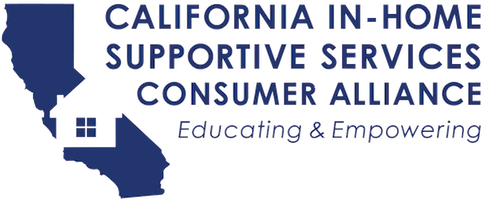Together, We Advance Caregivers
Partnerships are essential to the Center for Caregiver Advancement as we work towards building a workforce of highly trained caregivers that many Californians can’t live without.
By partnering with public authorities, SEIU Local 2015, state government, employers, consumer advocacy groups, and others, we create career pathways and advance the professional development of long-term care workers.


We proudly recognize those who generously support and elevate our work.






Read about our partners below & contact us if your organization is interested in working with us.
Publicly Operated Health Plans
We provide caregiver training on essential skills to support daily living and condition-specific skills to ensure that managed care organizations’ members receive the best possible care.
CCA’s caregiver training programs are proven to increase job retention for In-Home Supportive Services (IHSS) providers and improve the quality of care they provide for the older adults and people with disabilities.


Public Authorities
CCA collaborates with several county public authorities that provide in-home supportive services that enable California residents to live independently and safely in their own homes. The IHSS program, overseen by the California Department of Social Services, currently serves more than 700,000 program recipients statewide.
CCA partners with select public authorities by providing caregiver training programs that meet the needs of the county’s IHSS caregiver populations.
Nursing Home Employers
CCA works with skilled nursing facility employers that are members of The Education Fund to elevate the skills of their union workers who belong to SEIU Local 2015. Access to tuition-free courses offers training pathways to healthcare jobs as certified nursing assistants (CNAs) and licensed vocational nurses (LVNs).
These free training programs help advance workers’ skills, retain employees, reduce staff turnover, and enable workers to earn continuing education units (CEUs) to stay current with industry requirements, policies, and best practices.
Consumers
CCA believes that consumers who receive in-home care should have a voice in how caregiver training programs might be developed, expanded, and improved. At CCA, we view consumers as partners. For example, CCA partnered with the Personal Services Assistance Council in Los Angeles (PASC LA) to develop a collaborative learning model whereby caregivers and consumers could learn about caregiving side-by-side.
In addition, CCA leads a Consumer Advisory Committee (CAC), where discussions among consumers and program leaders have yielded such recommendations as consumer-specific training, more side-by-side learning with caregivers, and collaborative instruction led by CCA instructors and experienced consumers.
Board Members & Trustees
We are proud to work with a CCA Board of Directors comprised of members who represent organizations that champion health equity, social justice, and workforce development. Our Board members’ expertise in their respective fields, along with their commitment to the well-being of long-term care workers and the individuals they serve, helps guide our work at CCA in advancing the caregiver workforce.
We also work collaboratively with a group of respected experts who form our SEIU 2015 Training & Education Fund Board of Trustees. Many of our Trustees have experience in the training and education arenas, and we rely on their expertise to help us develop caregiver training programs that are person-centered and suited to the diverse student populations we serve.
Learn more about our Board of Directors & Board of Trustees by visiting the Our Team page.
Research Organizations
Through our relationships with universities and research organizations, we provide research reports that demonstrate how our caregiver training has a positive impact by building caregiver skills and confidence, increasing worker retention, and improving both job quality and quality of care.





Advocacy Groups & Policymakers
CCA works with advocacy groups, policymakers, and other stakeholders to raise awareness about the need for access to caregiver training and career pathway programs to attract and retain long-term care workers in quality jobs.








